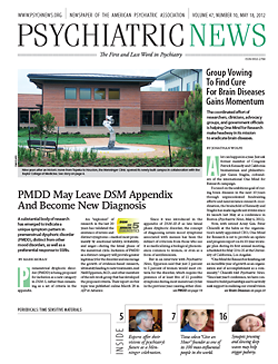As parents know only too well, the arrival of puberty is a period of seismic changes—both in hormones and in behavior. And as scientists know, adolescence is also a time when brain waves during sleep slow down.
Now researchers at the University of California, Davis, have found a striking correlation between the slowing of brain-wave activity during sleep and the onset of puberty.
The lead investigator was Ian Campbell, Ph.D., a project scientist, and the senior investigator was Irwin Feinberg, M.D., a professor of psychiatry. The results were published online March 26 in the Proceedings of the National Academy of Sciences.
Campbell, Feinberg, and colleagues made their discovery after conducting a longitudinal study that included 67 children in two age cohorts. One cohort consisted of 15 males and 15 females who entered the study at age 9 and who were followed for seven years. The second cohort—18 males and 19 females—entered the study at age 12 and were followed for six years. Thus, the subjects’ ages spanned 9 to 18, with the two cohorts overlapping across ages 12 to 16.
Twice throughout the study period, and while the subjects were sleeping at home in their own beds, the researchers used EEGs to record the subjects’ delta-wave and theta-wave power during the first five hours of non-rapid-eye-movement (NREM) sleep. Within a month of the EEG recordings, a physician performed a physical examination on the girls to determine breast development and pubic hair growth and on the boys to determine genital development and pubic hair growth. The scientists then assessed whether there was any link between the subjects’ delta-wave and theta-wave power and the onset of puberty.
They found that such a link did exist. A dramatic, statistically significant decline in both delta-wave power and theta-wave power occurred as puberty arrived.
Why sleep-wave decline and puberty onset are in sync is not apparent from the study. But the researchers suspect that it might involve the fact that the brain trims neuron synapses back as puberty approaches. In other words, synapse pruning might reduce brain-wave activity, and either or both phenomena in turn might help trigger puberty.
These findings have implications for psychiatrists, Feinberg told Psychiatric News. “The human brain undergoes a pervasive reorganization during adolescence. Synaptic pruning is a major driver of this reorganization, but other brain changes probably also take place. In addition, other systems are involved, most obviously the neuroendocrine systems that control puberty. Many major psychiatric disorders emerge toward the end of adolescence, and it is reasonable to infer that some of these—notably schizophrenia—might be caused by errors in these programmed maturational processes.”
“The longitudinal study that Campbell and I have carried out over the past 10 years,” Feinberg continued, “has produced a unique and, for sleep research, huge dataset. It provides an essential normative framework for [investigations of] neurodevelopment disorders such as schizophrenia and autism. One of our goals is to secure funding to place these data online because our analyses thus far have only scratched the surface of the information that can be mined through open, worldwide investigation.”
The study was funded by the U.S. Public Health Service.



